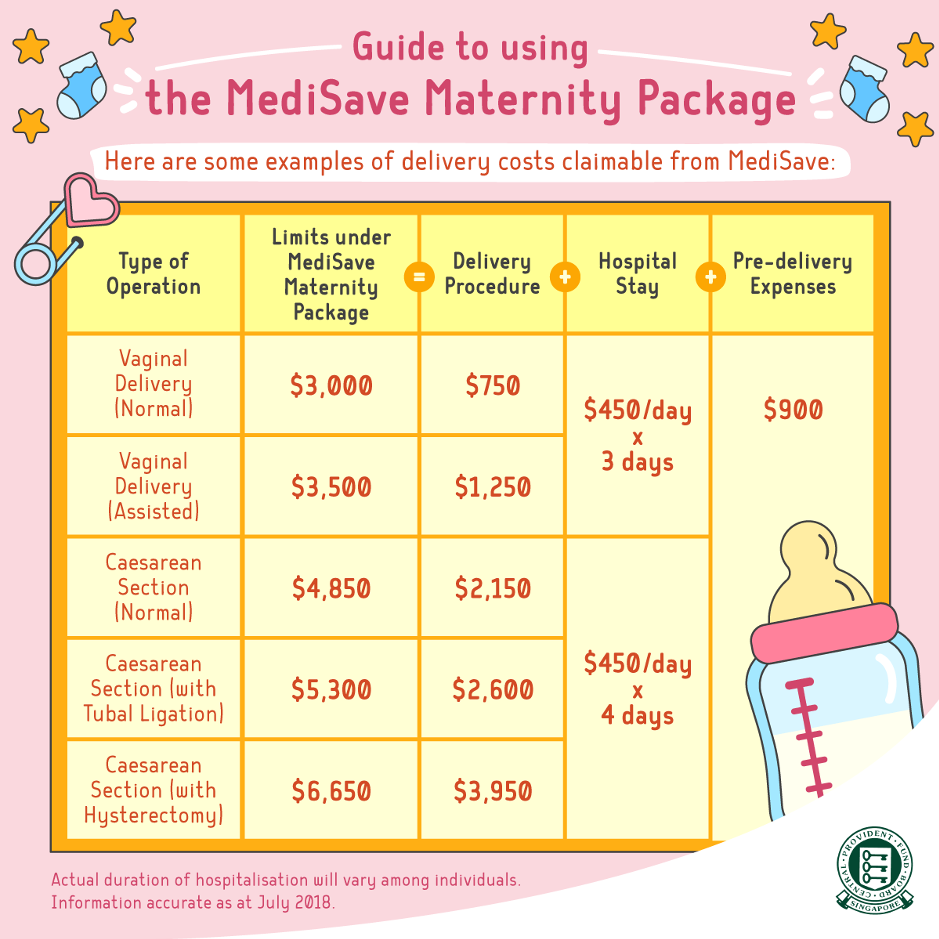Singapore is a popular place to work, live and start a family. This is partly due to having a world-class healthcare system which is undoubtedly still expensive for many families even after government grants and subsidies.
With healthcare costs on the rise, Singaporeans can lean on the MediSave Maternity Package which allows you to use Medisave monies to pay for expenses associated with the delivery of your newborn baby.
Here’s what new parents should know about using their MediSave monies for their child’s delivery costs.
What Is MediSave Maternity Package (MMP)?
MediSave Maternity Package (MMP) gives parents the right to use some of their MediSave savings to clear pre-delivery medical expenses, delivery costs, and daily hospital charges.
There are rules that control how much of your MediSave you can use, based on what medical procedures you require and the length of your hospitalisation stays.
Under the same rules for other regular hospital expenses, MMP allows parents to use their MediSave monies at both public and private hospitals. However post-natal follow-ups and consultation fees cannot be used under MMP.
How Much Can You Use Under The MediSave Maternity Package?
The limits of the amount that parents can use depend on the type of birth, whether it is vaginal or caesarean section delivery. These limits are set by the CPF Board and will be reviewed periodically to account for rises in medical costs.
This is how much of your MediSave you can use under MMP at various stages:
i) Pre-Delivery: You can utilise up to $900 for pre-delivery expenses, such as consultations, medications, ultrasounds, and other tests.
ii) Delivery: For vaginal birth delivery ,you can utilise between $750 (normal) and $1,250 (assisted) while those undergoing caesarean section deliveries can use $2,150 (normal), $2,600 (with tubal ligation) or $3,950 (with hysterectomy).
iii) Hospital Stay: Under MMP, you can pay up to $450 for each day you are hospitalised after delivery, which is typically 3 days ($1,350) for vaginal delivery and 4 days ($1,800) for caesarean section delivery.
This works out to between $3,000 to $6,650 in total.

Take note that the sums specified by MMP are the maximum amount of MediSave you can use for each step of your delivery. It is not necessary to use your MediSave monies for all/part of your delivery expenses.
For example, parents who have enough cash prefer to pay for their delivery expenses and let their MediSave monies grow in anticipation of future healthcare expenses.
Also, those who are in dire circumstances of wanting termination of pregnancy are allowed to use between $1,500 to $1,650 from their MediSave as part of MMP.
Medisave Grants For Newborns
Singapore’s government offers Medisave grants for newborns to help young parents pay for medical expenses such as child vaccinations and other outpatient treatments.
Eligible newborns will receive $4,000 automatically after registration of birth. This grant is applicable for infants born from 1 January 2015 onwards, or $3,000 for infants born from 26th August 2012 but before 1 January 2015.
How To Submit A Claim Under The MediSave Maternity Package?
Submit all these receipts and inform the hospital clerk of your decision to use MediSave under MMP. The hospital will then submit a MediSave withdrawal request under MMP for you.
MMP is designed to allow parents to utilise their MediSave to cover delivery costs. There will be a continual requirement to consult the doctor for follow-ups at regular intervals and perform vaccinations and tests when necessary.









